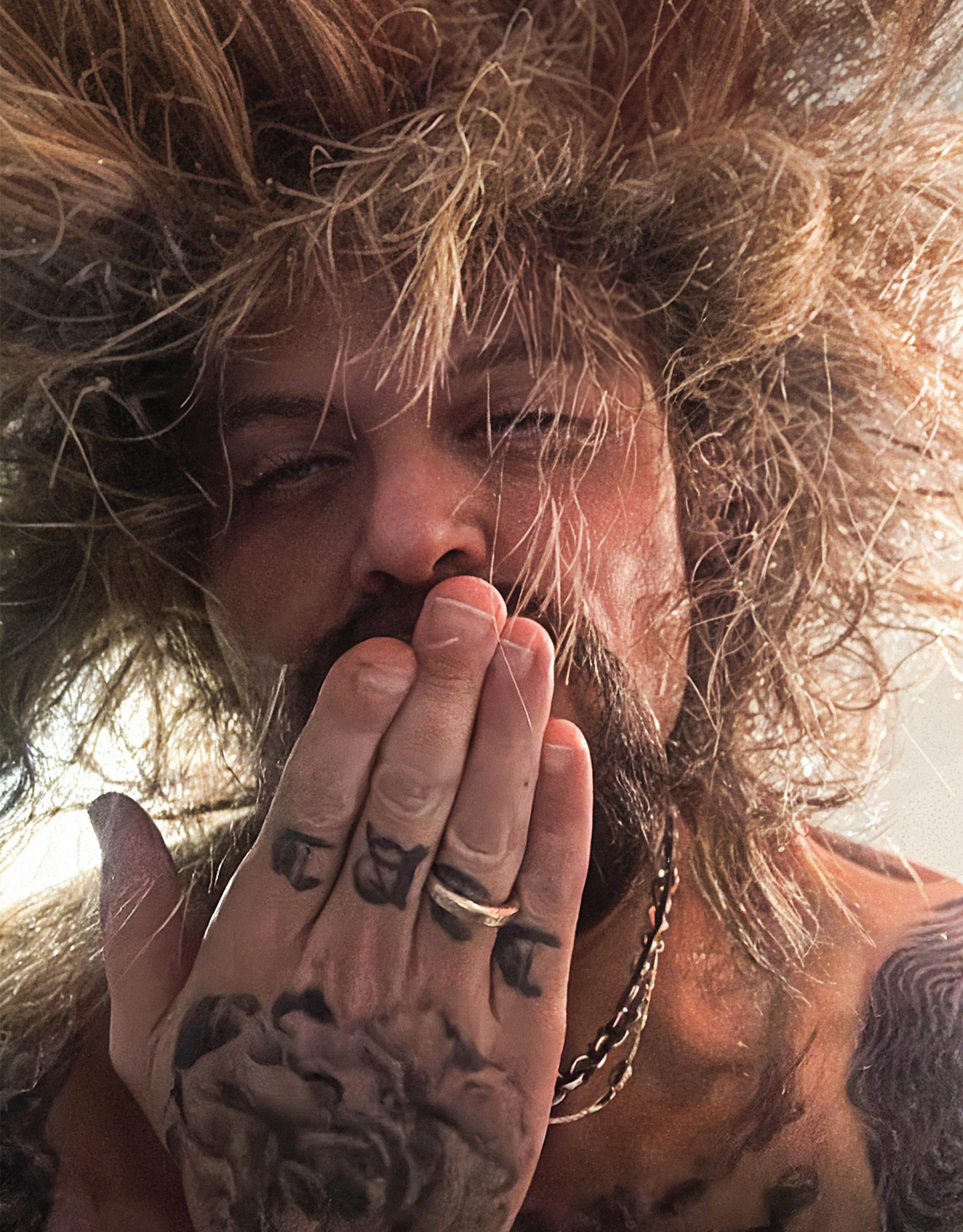

ART DEPARTMENT

ART DEPARTMENT
Art Department’s Jonny White Is Back - Stronger Than Ever
More than a simple return to the dancefloor, Jonny White is reclaiming a life’s work, grounded, experienced, and sharper in purpose than ever.
The Toronto native grew up surrounded by music; with his father working as division manager at A&M Records in the 80’s, attending schools for the arts in his formative years, and later finding a sense of belonging in the city’s house music culture, as it transitioned from warehouse spaces into clubs in the 90’s.
From a time when open to close sets were the norm, to running weekly illegal afters and the birth of his No.19 label, White’s path eventually led to Art Department’s meteoric rise. The project defined a sound that would help shape the future of electronic music, leading to #1 charting records and an endless touring schedule, curating events around the world for the likes of Fabric, Panorama Bar, DC-10 and Boiler Rooms. Then came silence.
In 2020, White fell gravely ill and was hospitalized in Spain, later diagnosed with Lyme disease, forcing him into years of isolation and recovery. That experience reshaped his sense of purpose, gratitude became his compass. Now, the studio is alive again. His long-rumored collaboration with RZA (Wu Tang Clan) is real, and so is his first solo work in years, arriving on the revered Rawax imprint. No.19 is relaunching with intent - honouring Toronto’s house pioneers and embracing new talents, honoring Toronto’s house pioneers and embracing new talents.
Behind the scene, his wildlife conservation project Music Against Animal Cruelty (MAAC) continues to bridge art, activism, and conservation. In this exclusive interview, Jonny White breaks the silence, as we dive deep into his rebirthexploring his battles, creative renewal, and how purpose became his true rhythm.
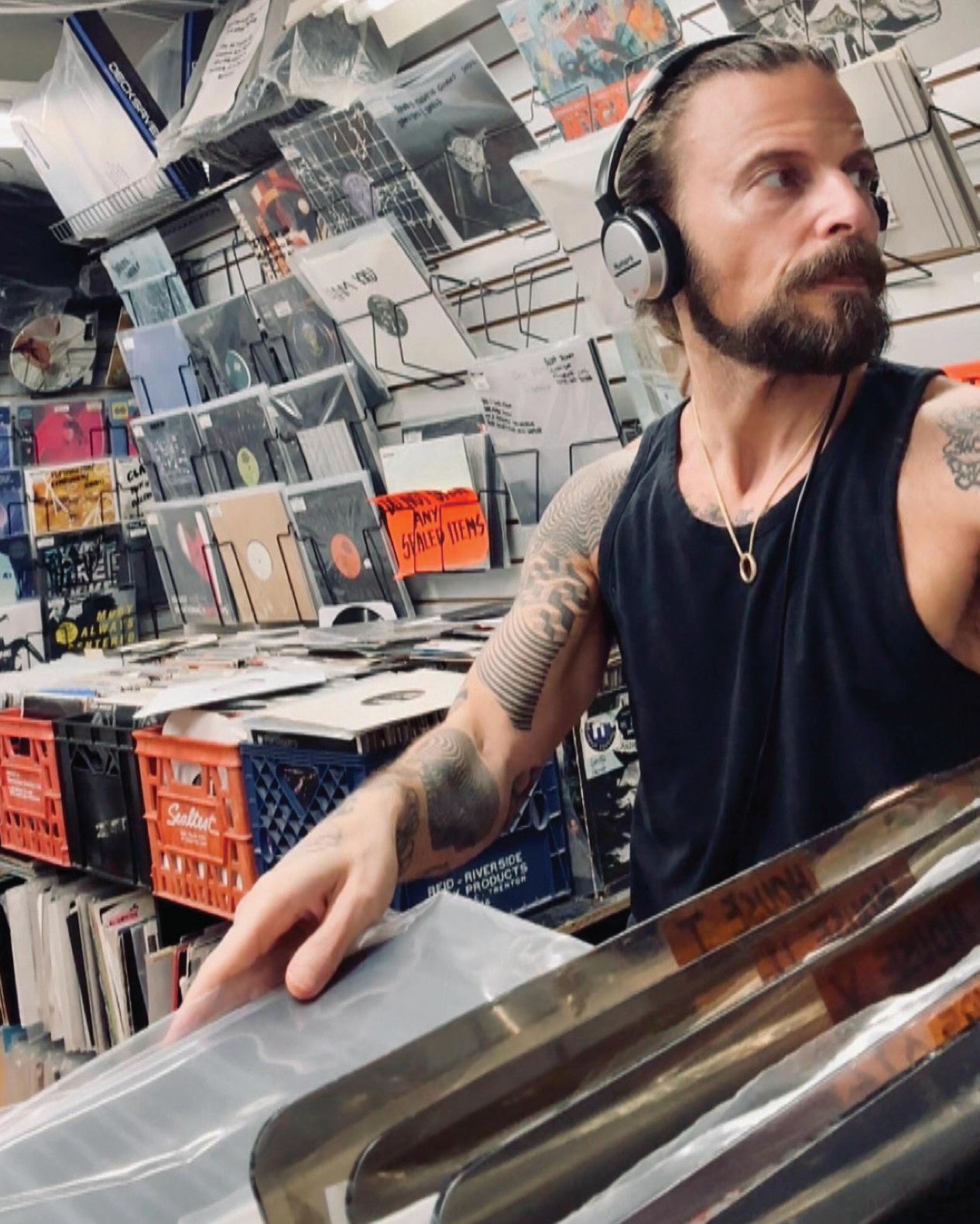
That’s pretty standard for my generation - you naturally evolve from local shows to releasing music and then maybe touring. There was even a bit of international touring as Jonny White before Art Department, which is actually why we started the project, to be honest. I wasn’t enjoying traveling alone, not knowing anybody anywhere I was playing - but I wanted to play.
There’s been a lot of speculation - why have you vanished for the last five years, and what have you really been up to during that time?
Right, yeah I’ve been meaning to address this for a while now. I’ve attempted to post something about this I don’t know how many times now and I’ve probably received more than a thousand messages asking why I’m not really touring or releasing music. I’m a pretty private person but there’ve been so many rumours that I want to dress this. Not that everyone gives a shit but, I think it’s time to just be transparent about this at least for the ones who do… and for myself.
In 2020 I got very very sick and was hospitalized in Spain where I was living. To make a long and complicated story short, I was eventually diagnosed with Lyme disease. Anyone who has Lyme, or known anyone who does, will know it’s a very complex chronic debilitating disease that’s very difficult to treat and manage. The nature of the symptoms are so widespread and the condition changes day by day, even hour to hour making it next to impossible to commit to plans, because you don’t know how you will be feeling tomorrow, let alone in a few months when it’s time to do a show you took. I’m actually going to expand on this a bit because I know that this is
going to help somebody suffering with his feel less alone, or maybe help validate the condition for someone next to them, who is trying to help and having trouble believing or understanding what they’re dealing with. I’ve been in both roles, first watching my parents suffer and losing one of them to a chronic debilitating diseases when I couldn’t understand it. Then experiencing it first hand. They call Lyme “the great imitator” for a reason. This thing can look like severe cognitive issues, motor function issues, extreme fatigue and transient muscle and joint issues. I’ve personally experienced such a huge array of symptoms I didn’t even know were possible from forgetting how to write, to not being able to stand due to heart issues and being on crutches from arthritic symptoms. Crazy sensitivities to foods, things in the environment, or everyday cleaning chemicals. Sometimes you’re unable to get out of bed for weeks. My doctors had even told me that I shouldn’t be flying without an oxygen machine at a point. The scariest part of this thing is the politics surrounding it leading to misdiagnosis and trouble finding help. And being in this grey area most people find themselves in despite being at pandemic levels in terms of numbers. This is what sidelined me originally and why I didn’t really come back after covid. I’ve done a handful of shows, maybe 10% of what I was doing before. Actually, with that, I’m going’ to take this moment to apologize to any fans or promotors reading this who I’ve let down by cancelling shows that I committed to and was unable to make it to. I’m super grateful to all of those people who have allowed me to live this life of sharing what I create with people , and I think I owe it to them to be transparent about this finally, as much as I owe it to myself to stop feeling like I need to hide this. It’s been a very
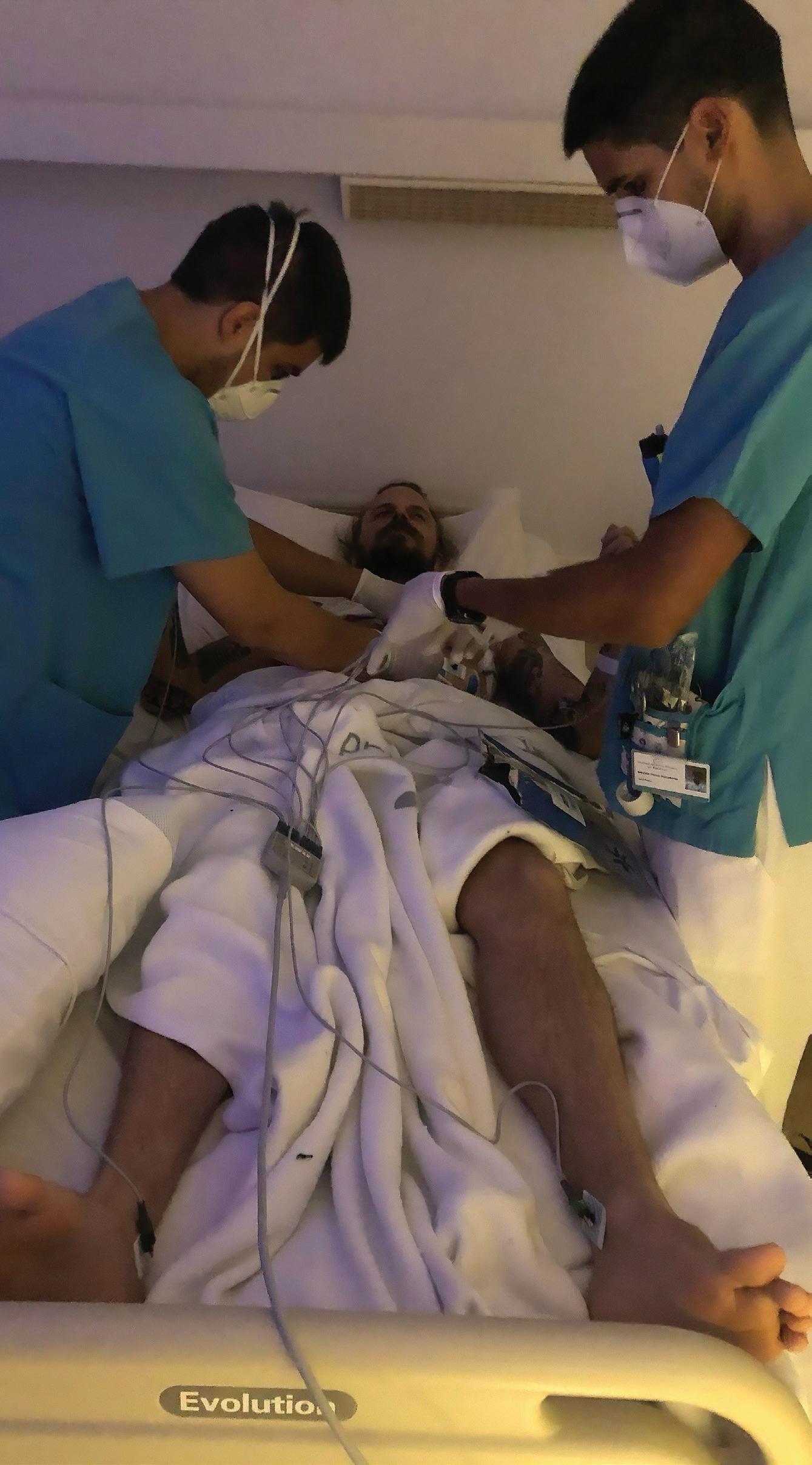
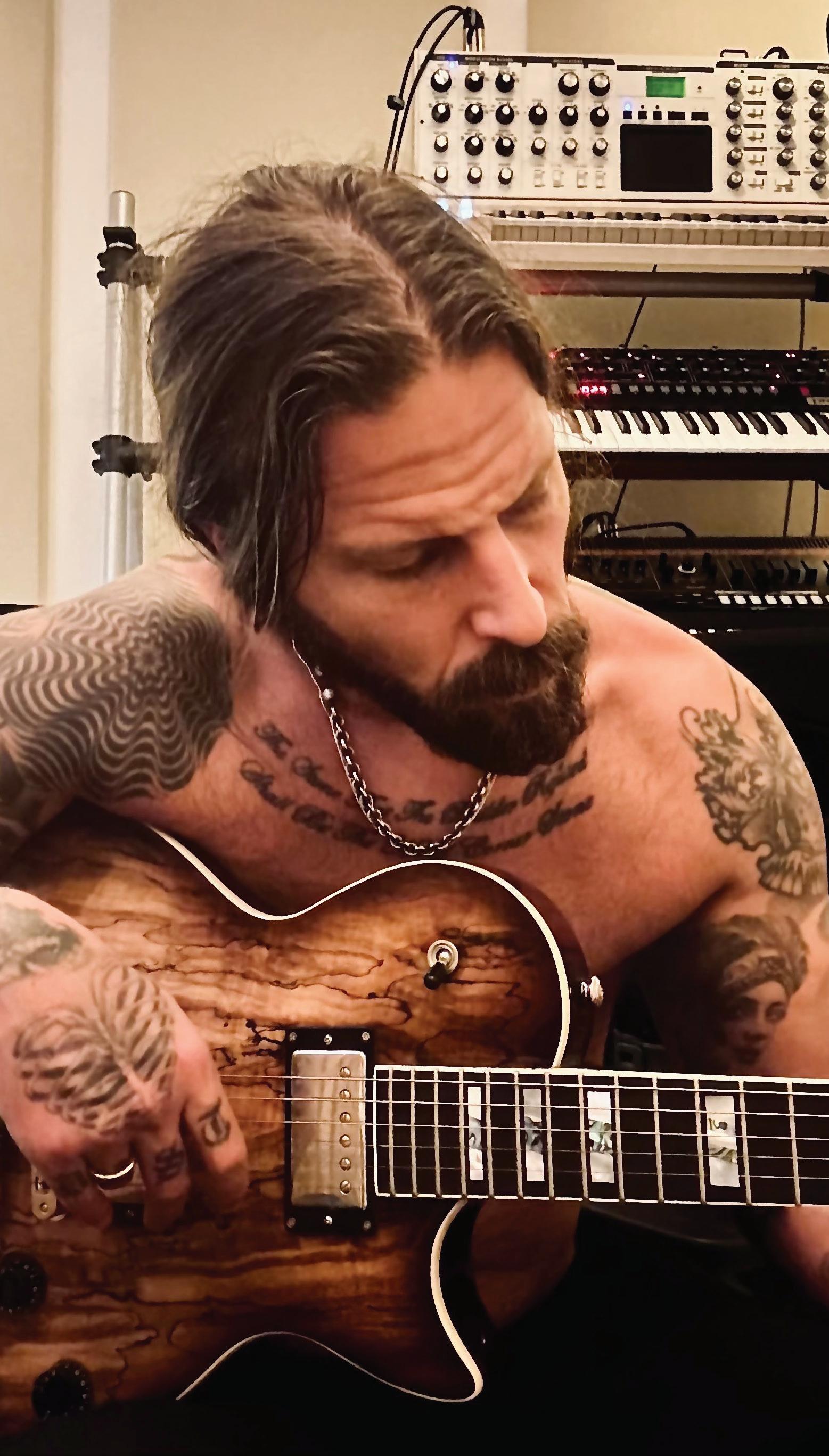
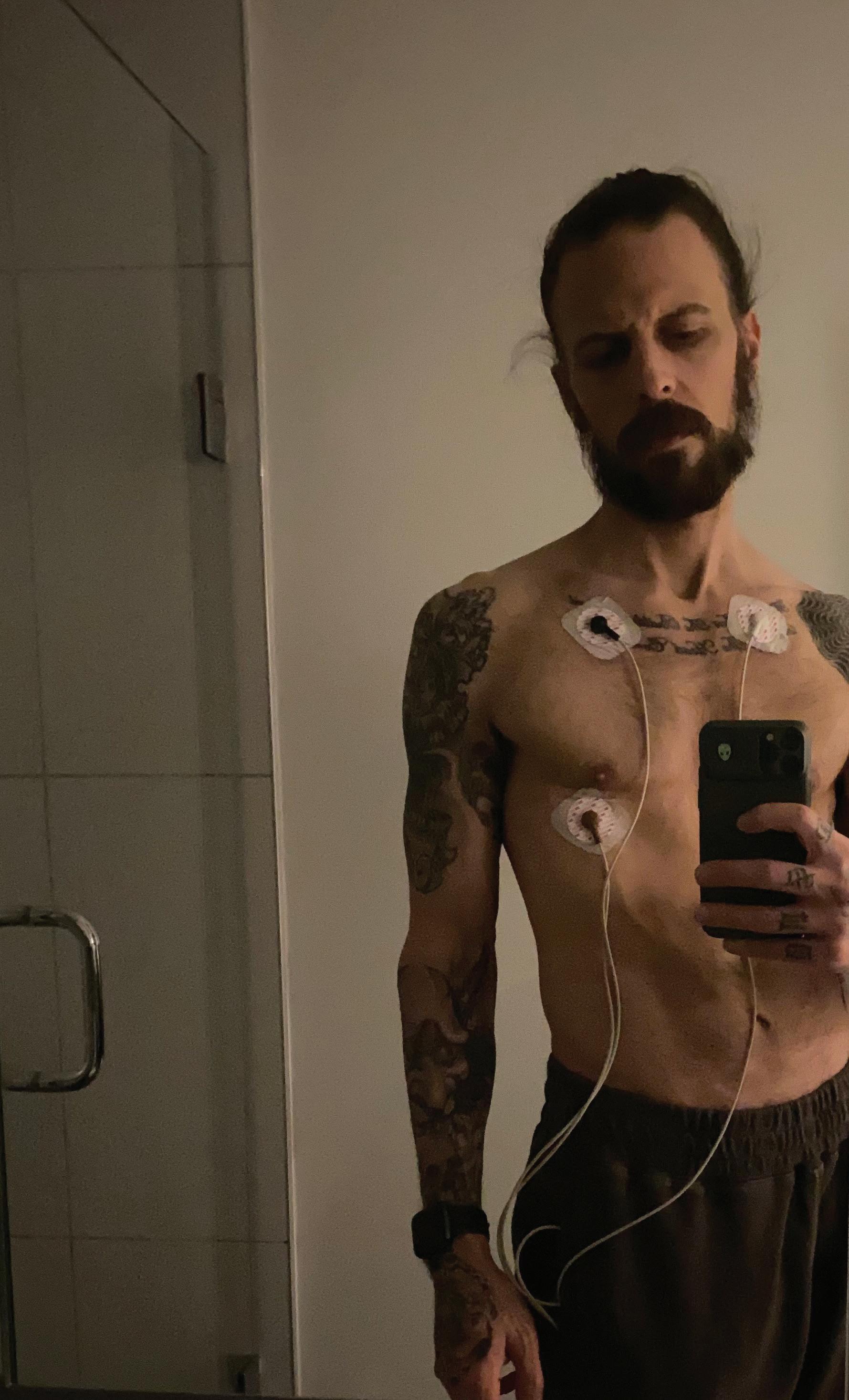
“INDUSTRY CHAOS AND NOISE HAS NOTHING TO DO WITH MY CONNECTION TO MUSIC. THAT’S A SPIRITUAL THING.”
“WE’RE ALL DEALING WITH SHIT AND IT’S ALL RELATIVE. IT’S OUR JOB TO ALCHEMIZE THAT INTO LOVE AND GROWTH.”
difficult ride but I’m also grateful for the experience and opportunity to grow and find more peace here. So with regard to the career, I’ve been healing, learning, watching. Thinking about how I can contribute now and where I can add value in the context of this sort of train that’s run off the tracks. We can come back to that..
To anyone reading this who is dealing with Lyme or whatever their struggle might be, sending you love and… I think that we’re all here to learn through difficulty and pain is always just pointing to the parts of us that need attention and healing. It’s just information and an opportunity. We’re all dealing with shit and it’s all relative. It’s
our job to alchemize that into love and growth.
We’ve heard you’ve been back in the studio recording with RZA from Wu-Tang Clan. How did that collaboration come together?
Yeah that’s one of the rumours that’s actually true., I mean I never really stopped writing music but it was very very slow and difficult with all the cognitive issues and problems with focussing, tinitis and even vision issues. The RZA thing; I’m close with Wu tang’s former booker - Matt Kingsley so I’ve got to hang out in greenrooms with them and played a few festivals with them over the years, but never really connected until
this. They were doin’ a show in Toronto when I was there, so Matt came in for the show and we ended up bouncing around to a few clubs after with RZA Ghostface and Raekwon. RZA and I got to talking about music and dance music, from Gorgio Moroder to John Frisante’s explorations into acid house and shit. I wasn’t surprised at how deep and widespread his interests are obviously, but was able to connect on that level. I showed RZA and Matt a photo of the studio I was working out of at the time - that was like a gear head’s wet dream, and Matt suggested we get in the studio together the next day if there’s time. Now you’ve got to understand to me RZA is like fucking Quincy jones. This guy
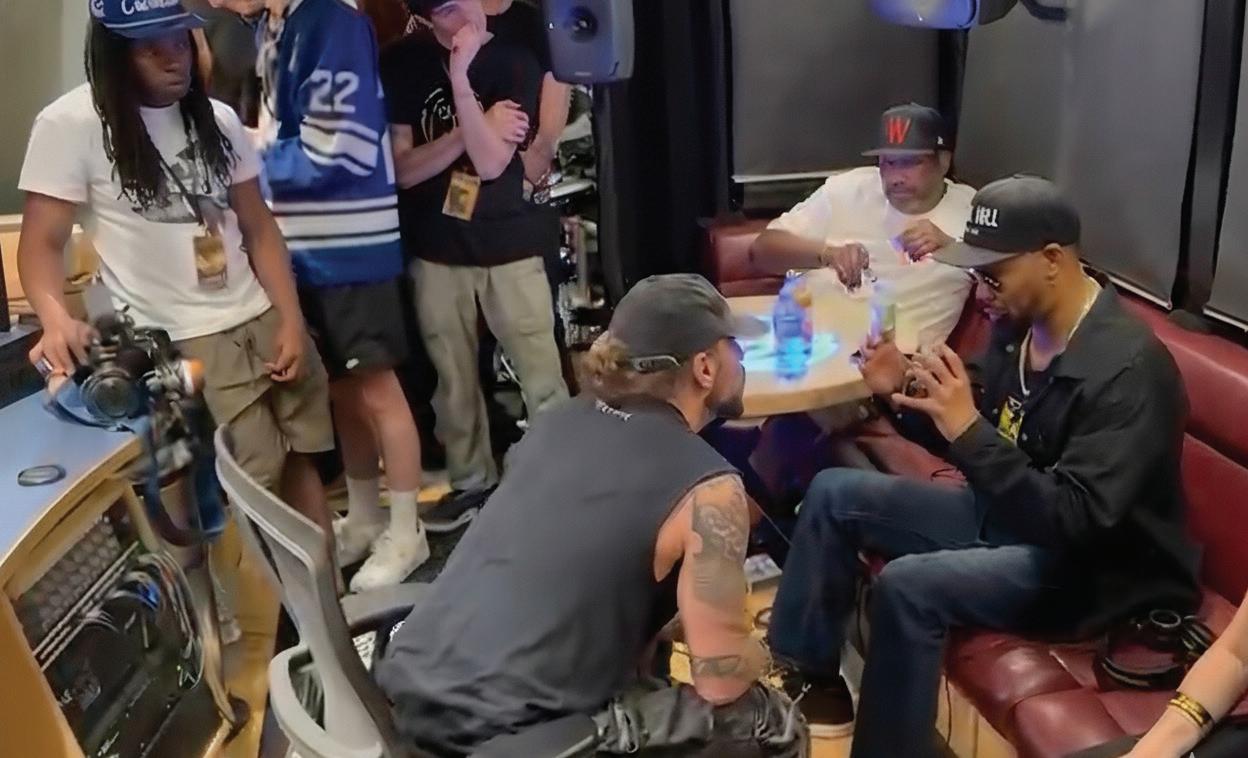
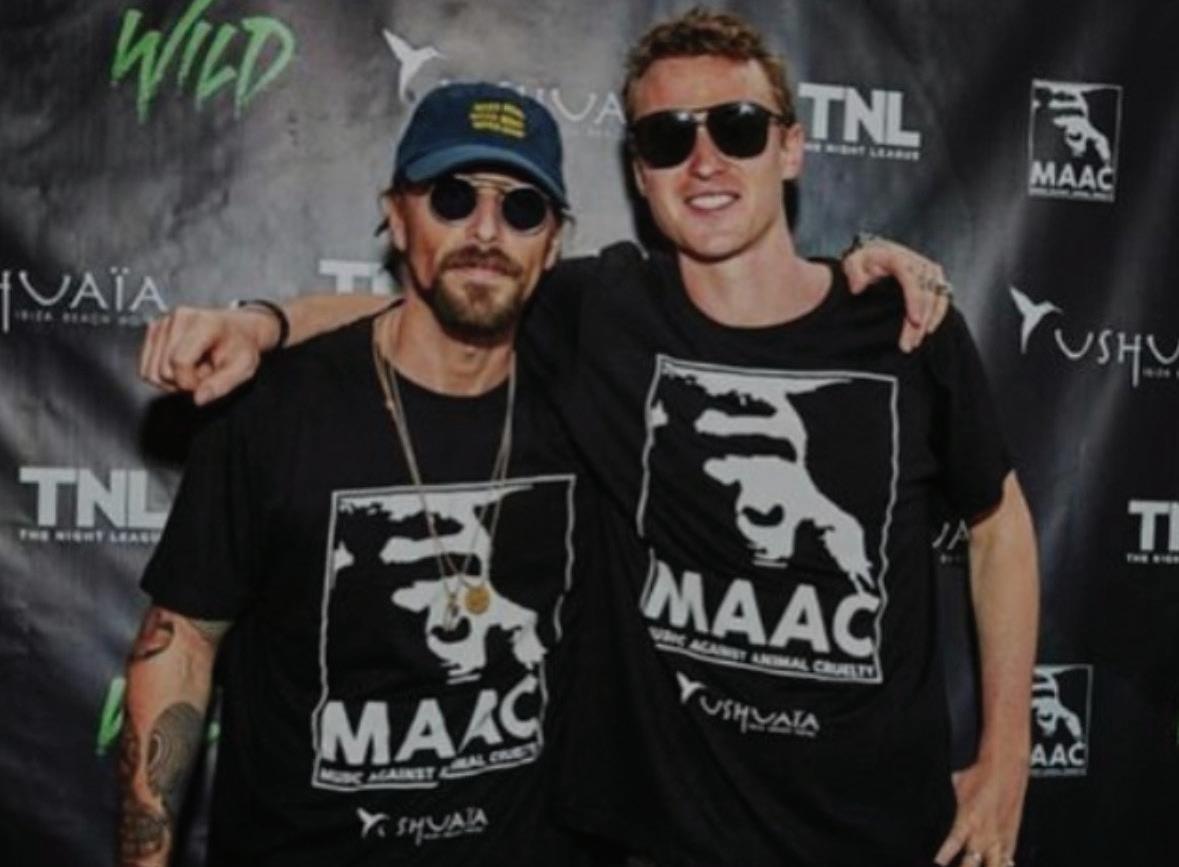
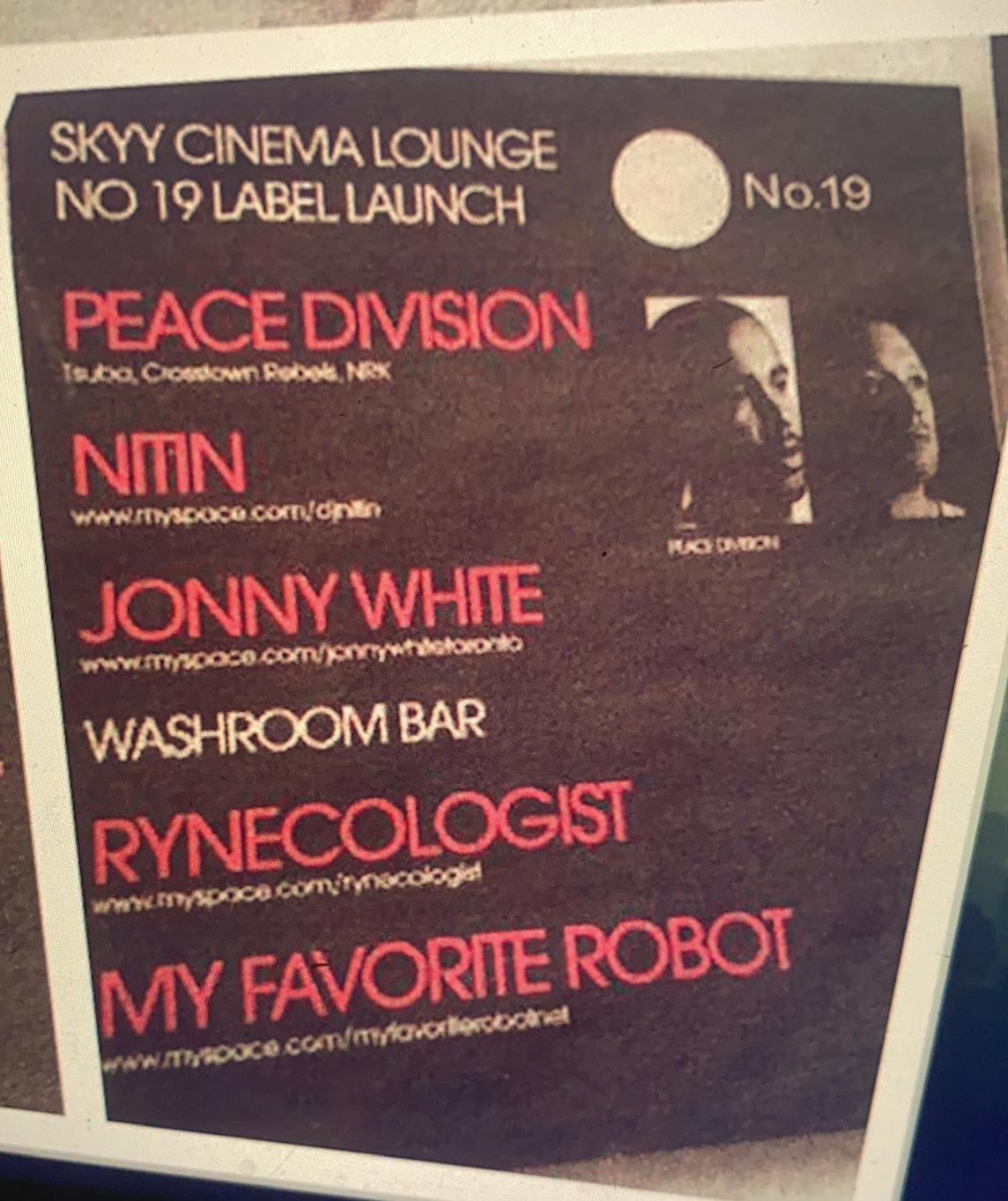
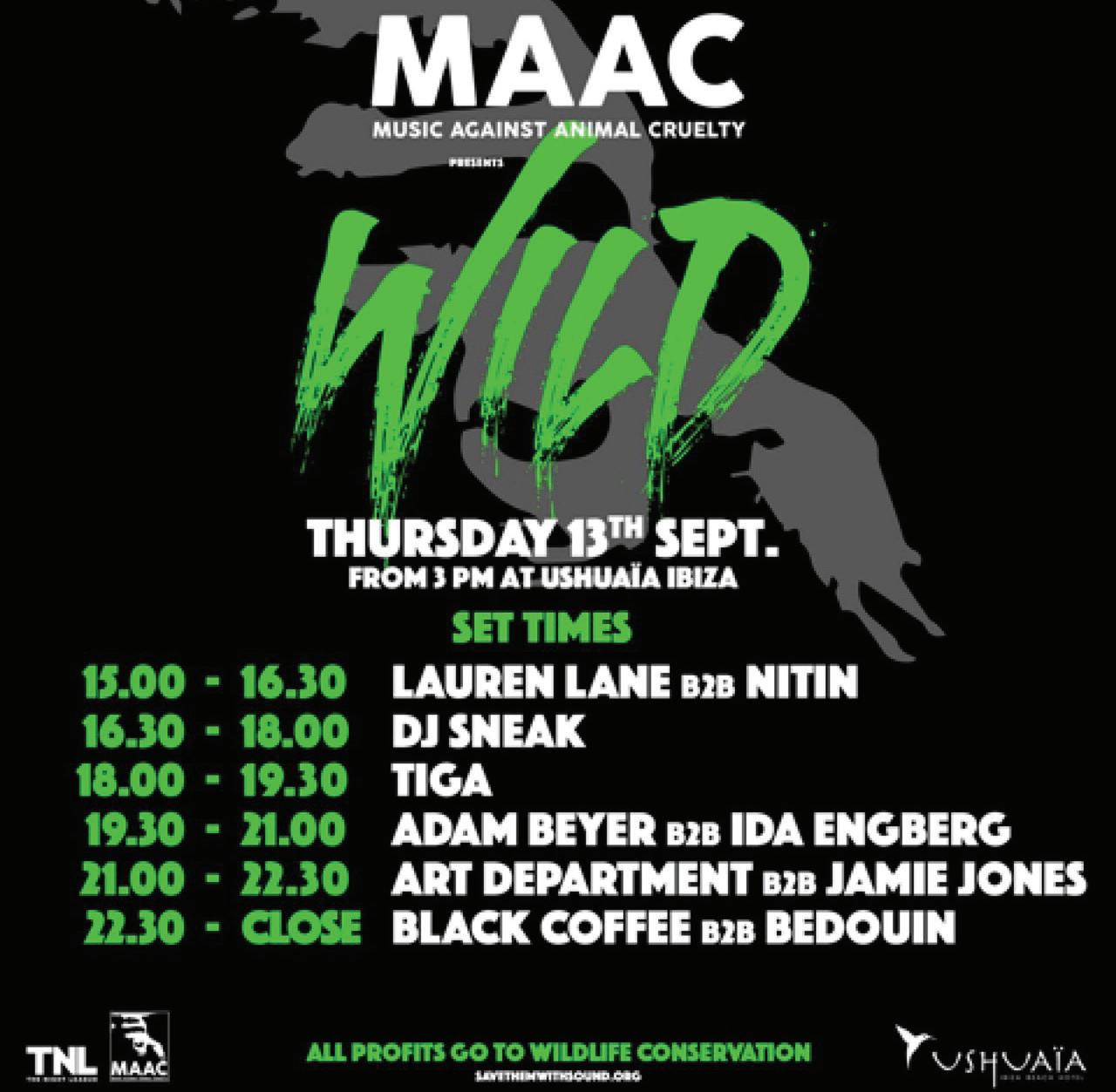
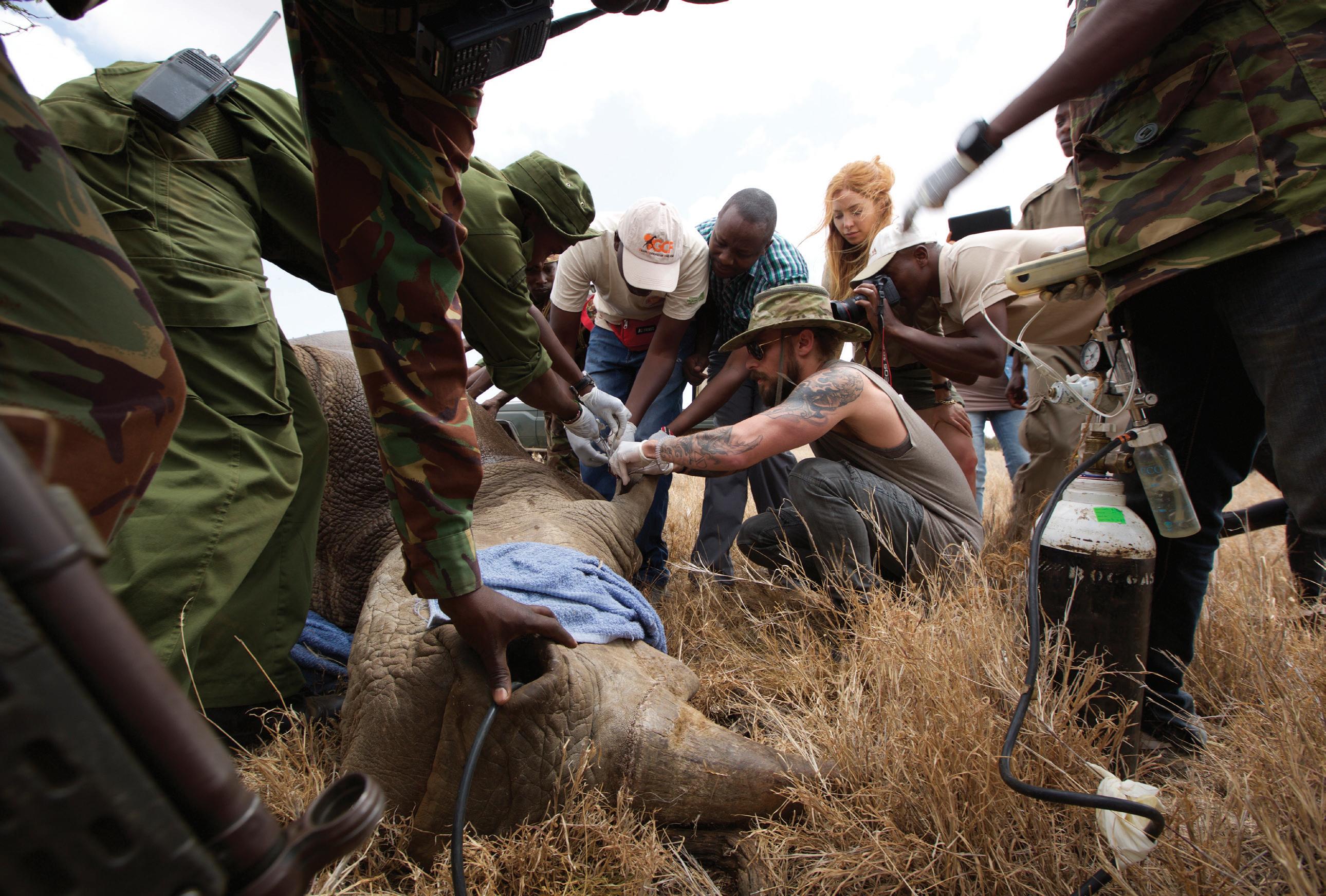
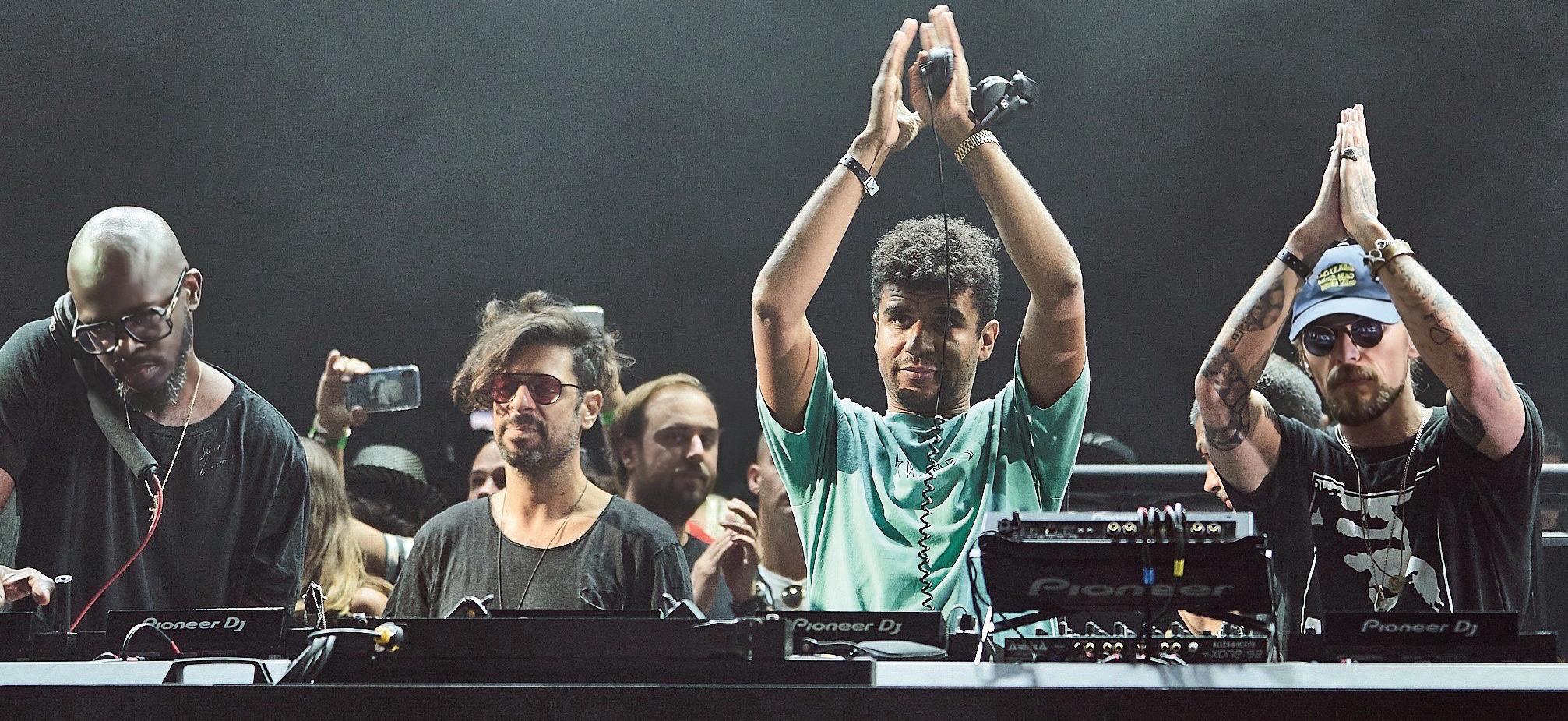
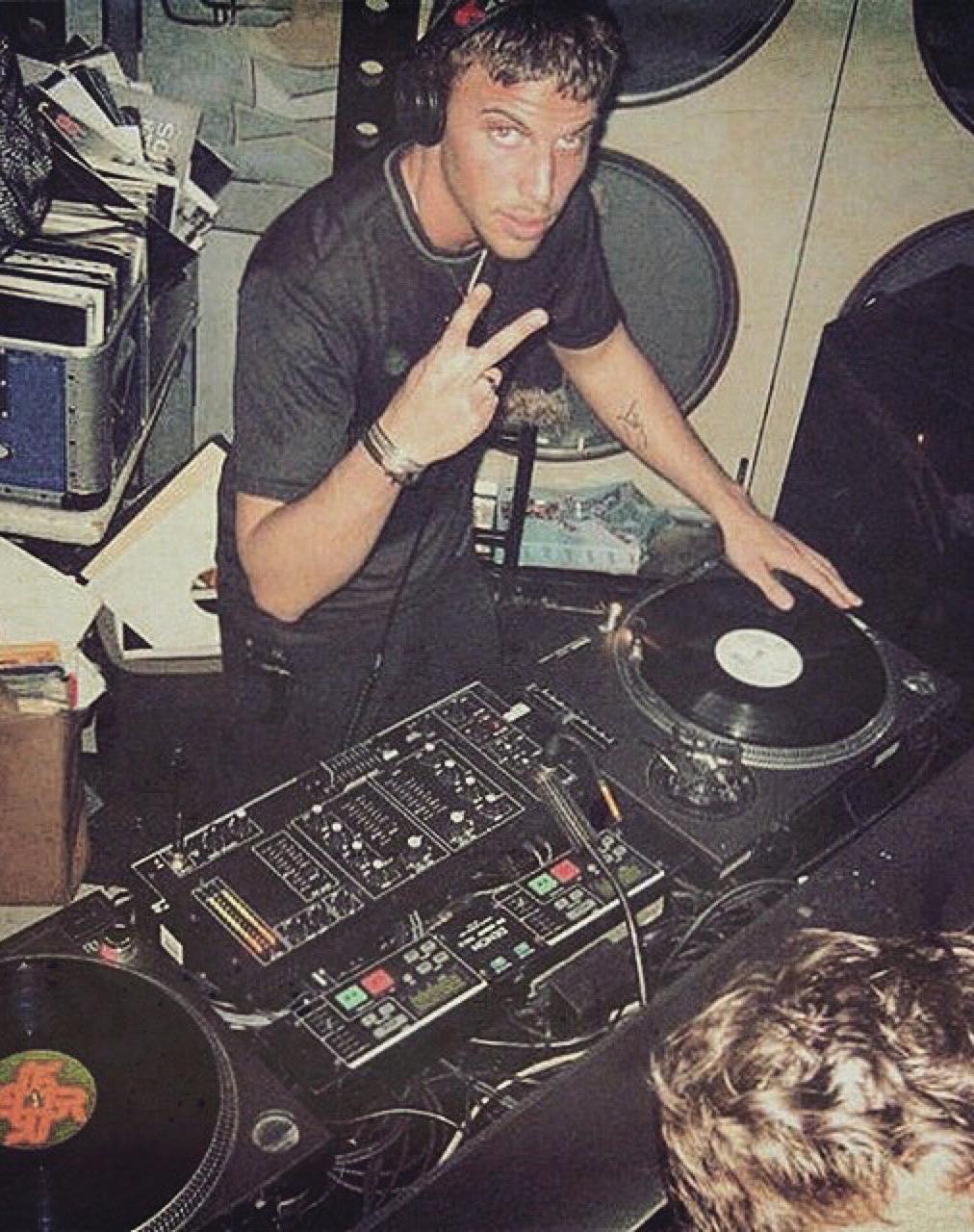
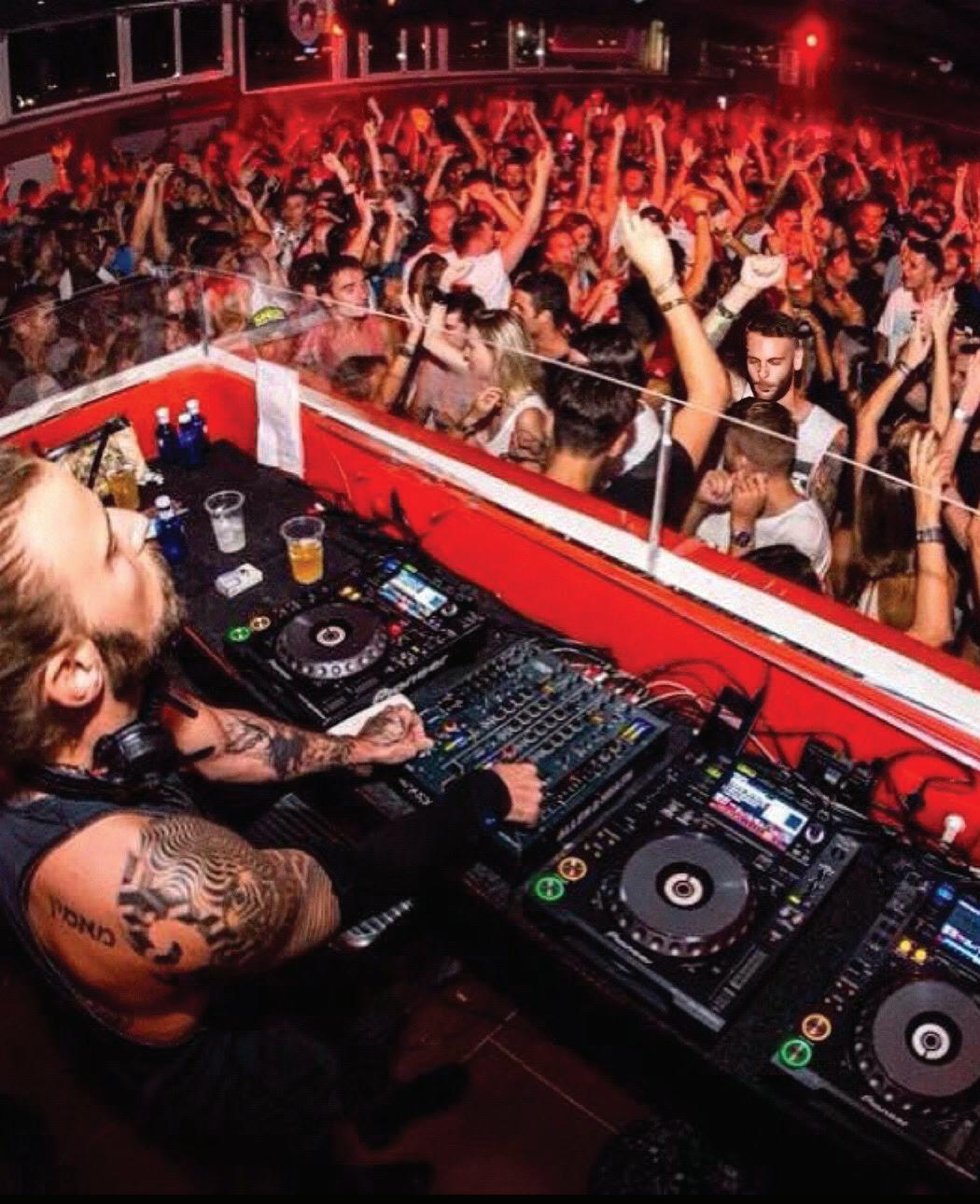
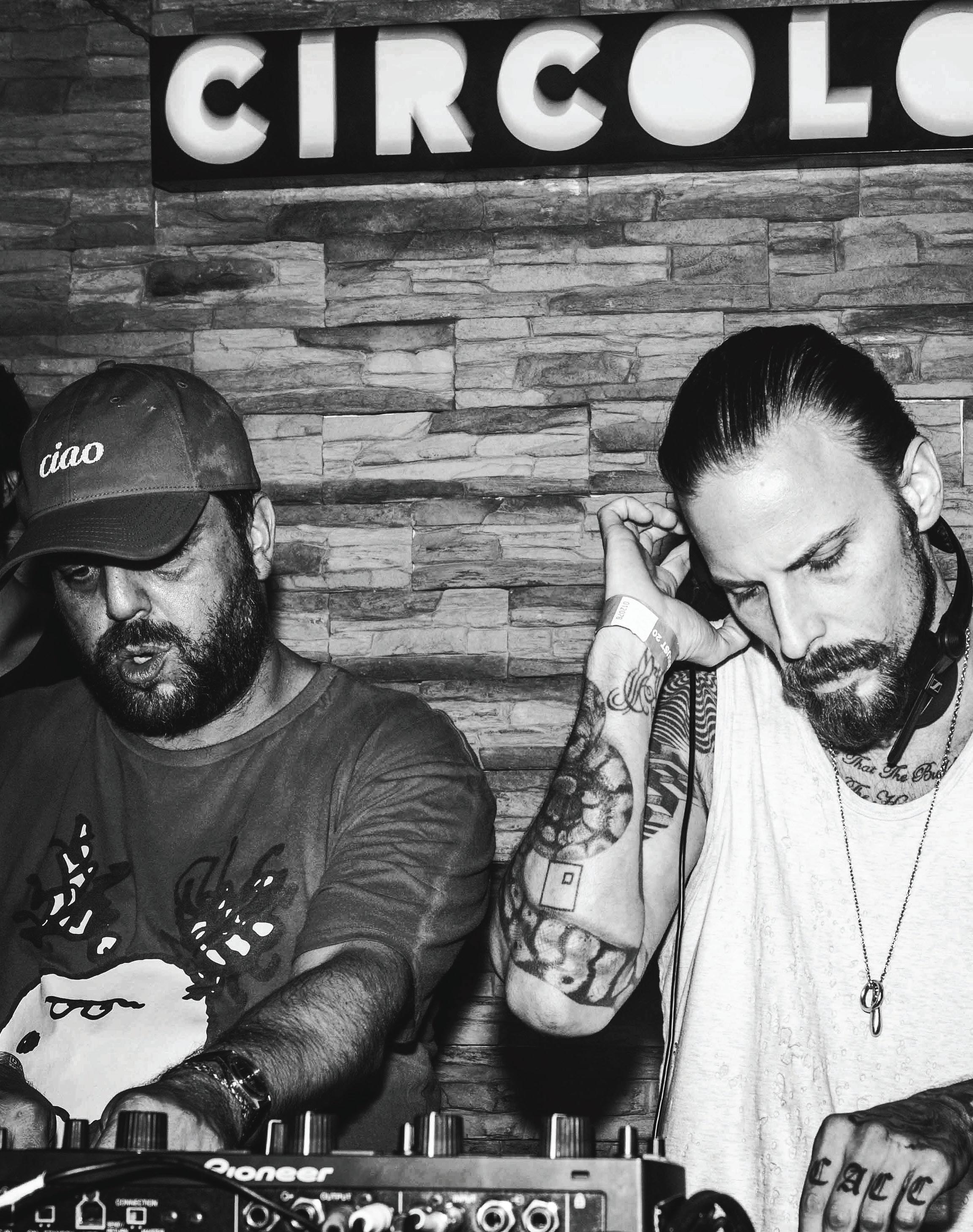
“MUSIC IS THE MOST BEAUTIFUL PATH TO BE ON IN THIS LIFE… THERE’S NO FINISH LINE, AS LONG AS YOU ENGAGE, THE JOURNEY CONTINUES.”
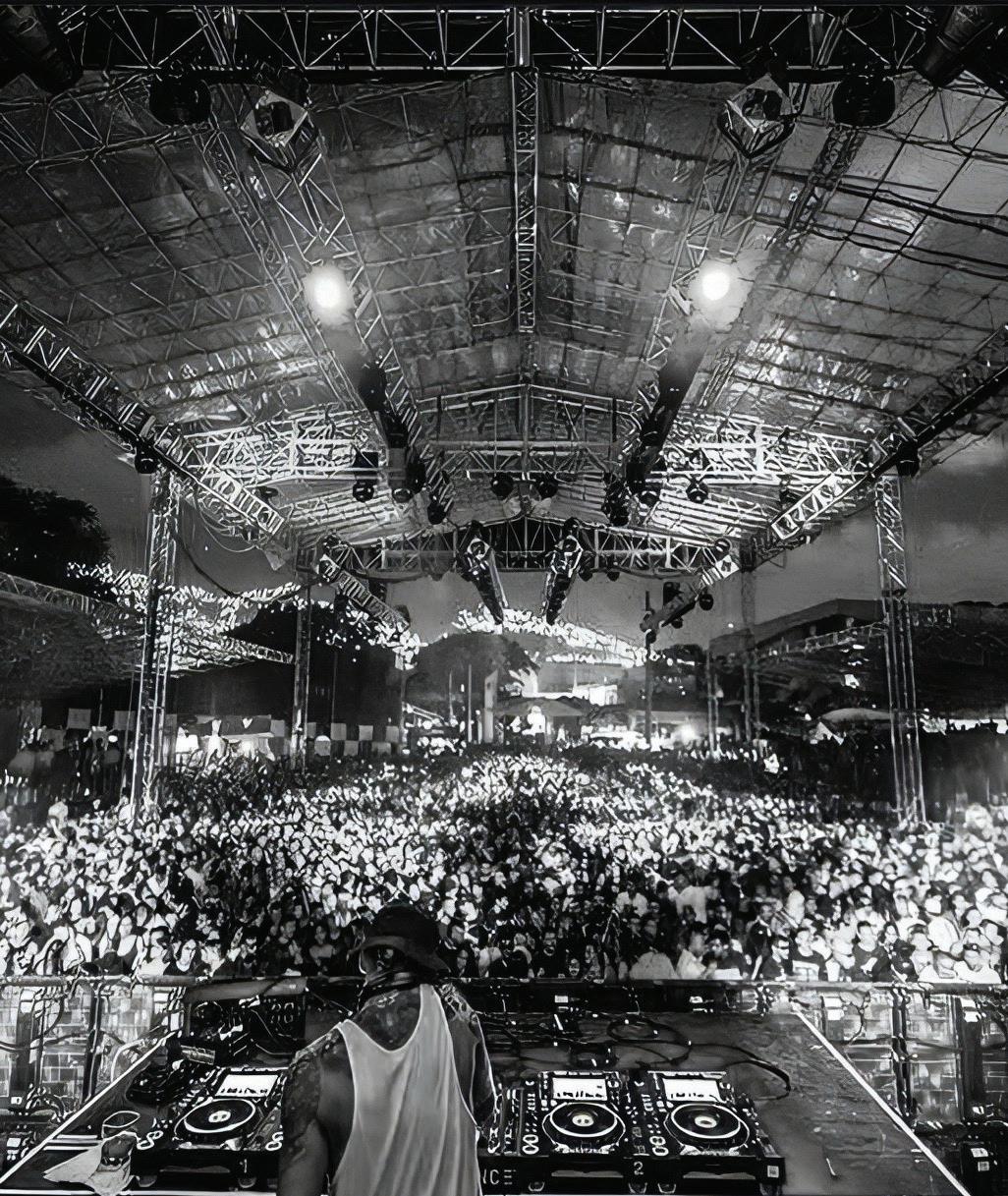
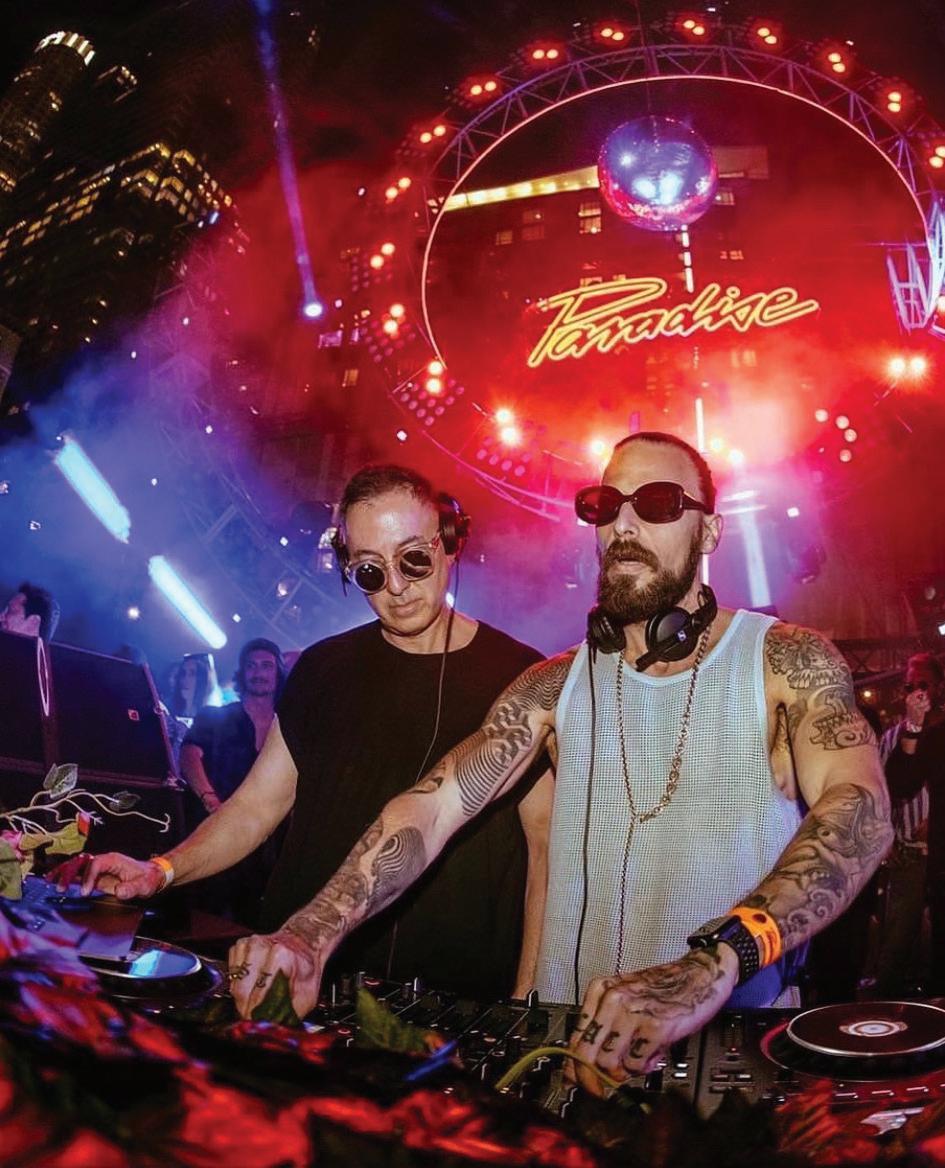
“THE LACK OF CULTURE, QUALITY AND CORPORATE INFLUENCE AND CONTROL IS THE ANTITHESIS OF WHAT THIS WHOLE THING WAS ABOUT, FOR US.”
What has kept you connected to music through all the industry noise, changes, and chaos?
The industry noise and chaos is just that. Noise. It has nothing to do with my connection to music. That’s a spiritual thing that’s completely separate from my career with electronic music. If we’re talking about what has kept me connected to making and playing music, that’s kind of a different conversation. That’s also a very spiritual relationship for me, but it is complicated by it being a career, and all of the bullshit that comes with that… But I will say one thing. Making music and playing music is like a hack for cutting through all of the noise in life in general and connecting with my higher self.. so finding ways to keep that pure and un-fucked is vital for me. Let me answer the actual question which is how.. If I were to give someone advice on how to stay connected to the music it would be this.. You need to engage with it. It’s always there for you, but it’s up to you to engage, even if you’re just a fan and a listener. You kind of have to treat it like any relationship that needs to be nurtured. If you feel like you’re losing a connection with someone you gotta pick up the fucking phone and call them. But here is why music is the most beautiful path to be on in this life… there’s no finish line, there’s no end of the map, there’s no last song to listen to or to write.. it goes on forever. As long as
you engage, the journey continues.
Looking back, Art Department and No.19 helped reshape how people saw house music. How do you feel about where the scene has gone since?
Thats a big statement. Thank you for saying that. It’s always cool to hear that. I have a real awareness that both projects have played their part. This is such a loaded question though. On one hand it’s a beautiful thing, to have made a significant contribution to the culture. and then at the same time I look at what label projects like mine and Hot Creations and Crosstown achieved, and the music my contemporaries and I created, in terms of crossing over and bridging a gap from the underground to more mainstream, and how in some ways its been detrimental to a lot of what I loved about this whole shit… and it can feel a bit strange. But that’s just how it goes with any type of art that catches on, across the board really. A lot of what’s changed for the worse is more to do with social media than any music project, but the lack of culture, quality and corporate influence and control is the antithesis of what this whole thing was about,for us. So it’s kind of bitter sweet for me. I love a lot of what came from what we created, but it also spawned a lot of fucking bullshit. Musically and politically.
Can you give us some highlights from your career that still resonate deeply with you today?
I don’t know man, at this point in my life, the way that I look at things versus even a few years ago, the experiences that I got to have through this career are the highlights. It’s not an achievement or a gig. It’s a life so full of extraordinary shit that I can’t even choose a few. I think I’ve done just about everything there is to do in this market, and played everywhere there is to play. What can I say, the first week of my first tour was Fabric, Panorama Bar and DC10. Maybe Recording the first album “the drawing board”, the early days of El Row, or Coachella? recording at Maida Vale studio at the BBC? the cameo in a Hollywood movie!?… it’s a ll crazy. Maybe releasing music from my heros like Frankie Knuckles or Kerri Chandler on my No.19 Label and doin our events all over the world…… there’s so much shit I’m grateful for and proud of, the list is endless, and still sureal to me, even now. But the obvious highlights are kind of just ego validating achievements. in the end it’s the process of creating and that journey it takes you on. The highlight might just be working on Art Department, and working on No.19. Those are the vehicles for all of the experiences… The highlight is the life I’m living, and the people I know…
What excites you most about dance music culture in 2025?
“THIS WHOLE CULTURE WAS BORN OUT OF CLUBS THAT WERE RADICALLY INCLUSIVE, AFFORDABLE, AND PRIORITIZED THE MUSIC. MUSIC WAS AT THE CENTRE OF IT ALL. CURRENTLY IT’S RUNNING BACKWARDS.”
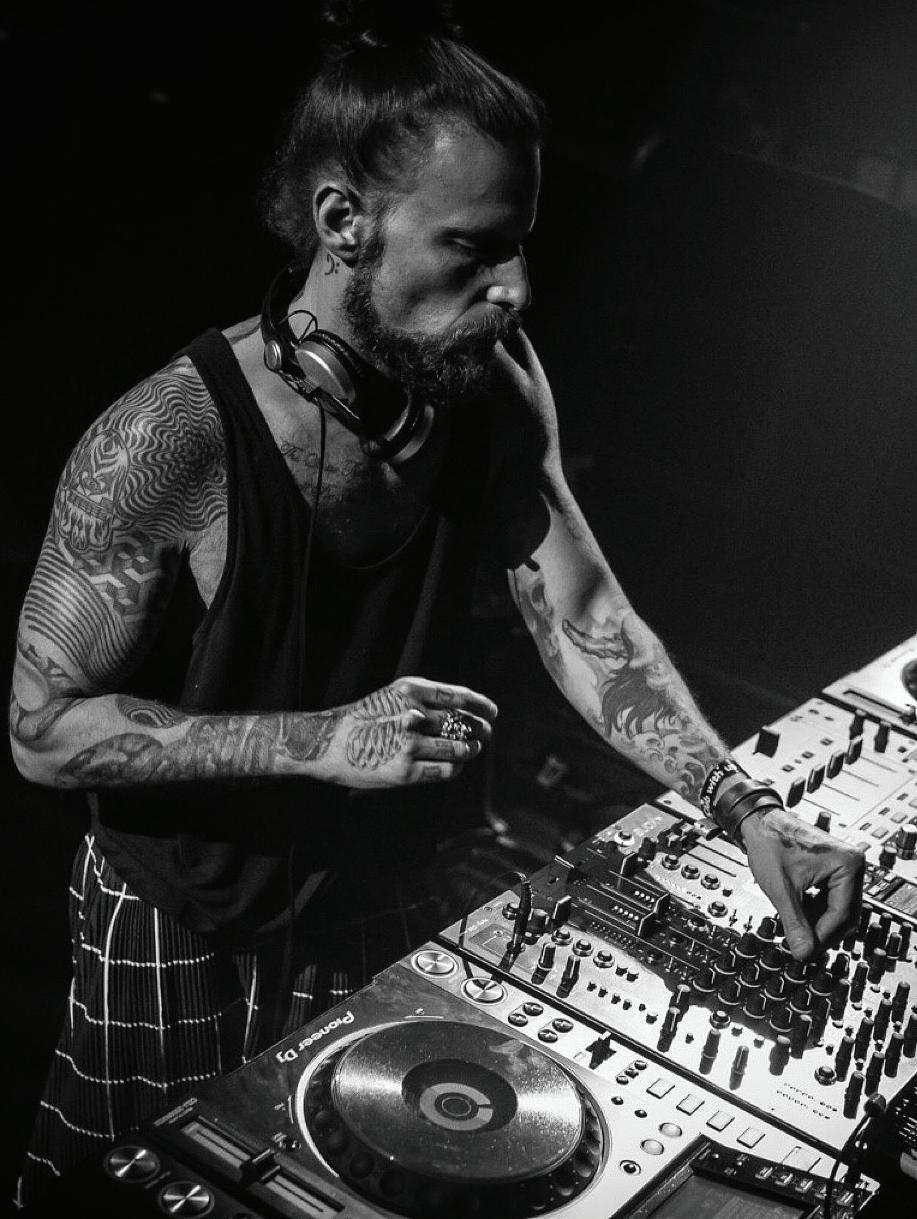
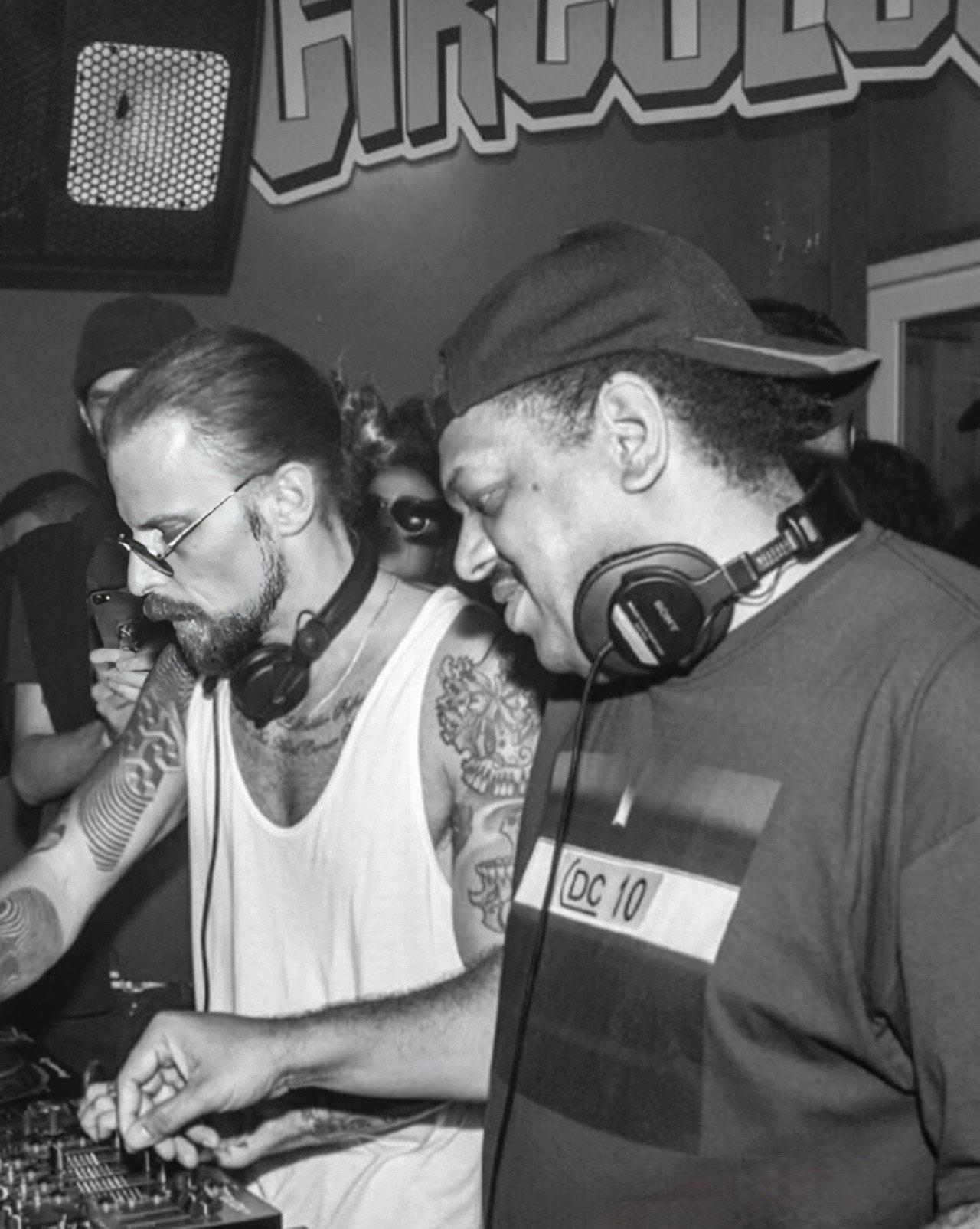
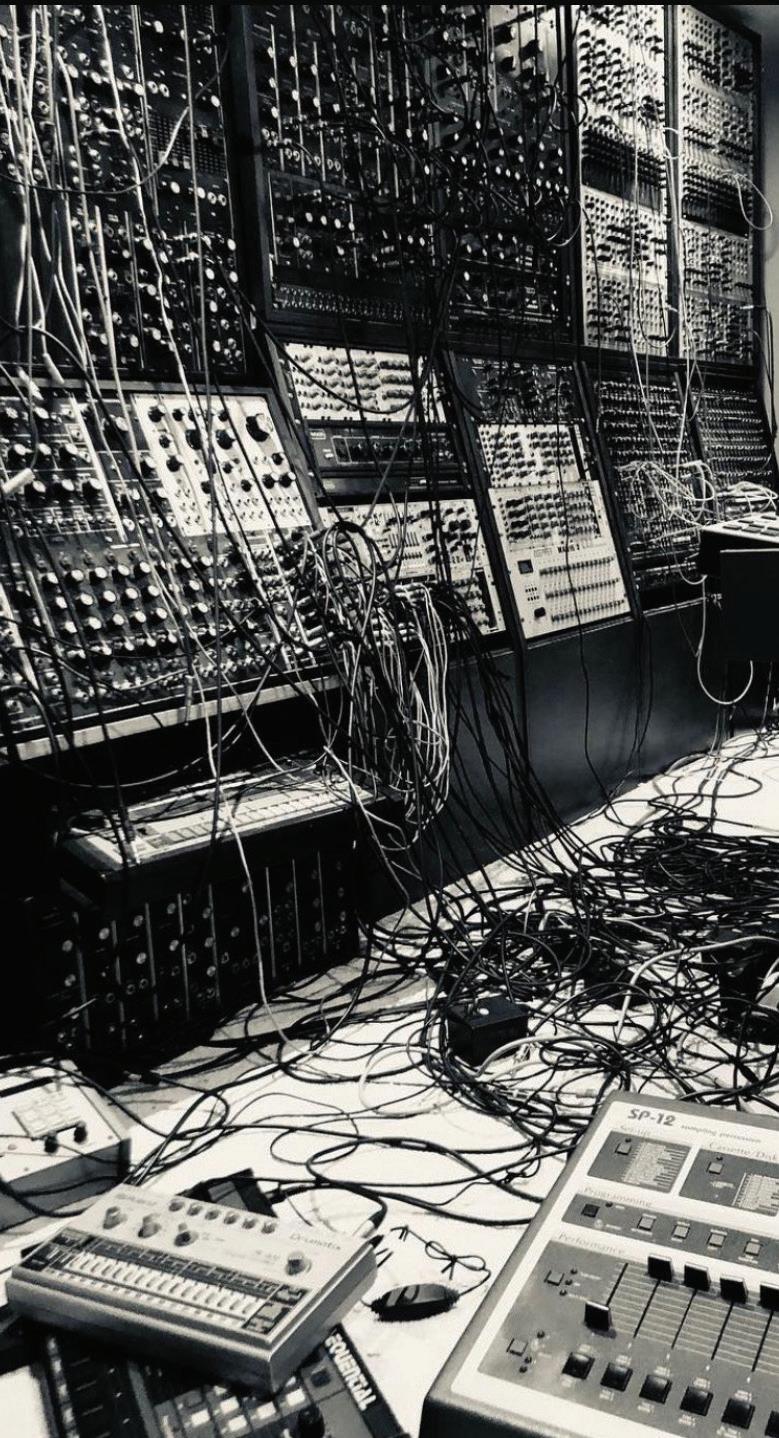
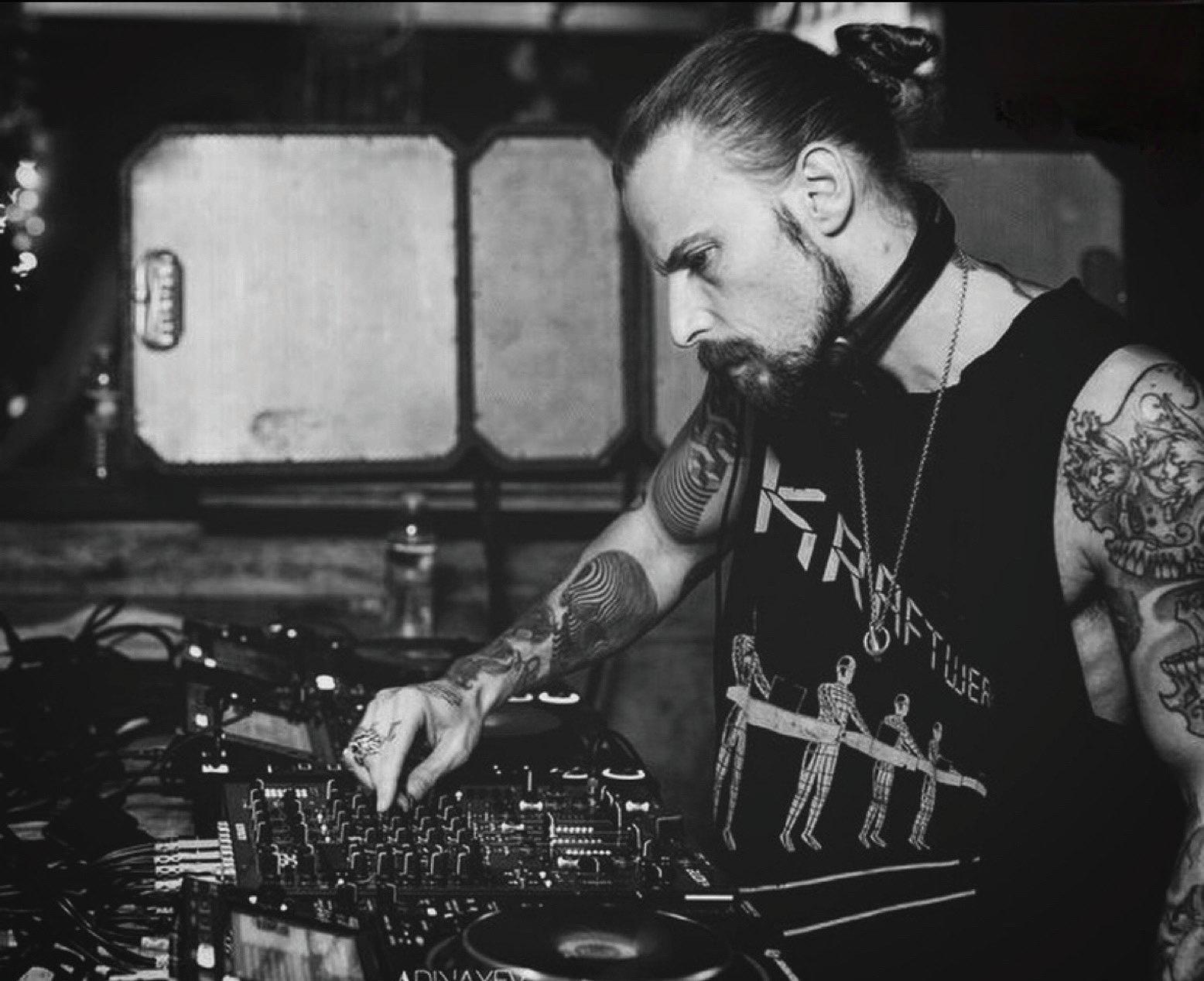
“WHEN IT BECOMES DIFFICULT FOR EVERYONE TO MAKE A LIVING WHILE TRYING TO HOLD THE LINE, THE CULTURE COLLAPSES AND THAT’S WHAT WE’RE SEEING.”
Thats a difficult question. Probably something we should all ask ourselves more often while everyone seems to be talking about what they dislike about it now. The thing that excites me most is still the music. The big difference is that, the music might be the only thing that excites me now whereas before it was a culture and a community that made me feel safe and at home on this planet.
Is the underground still possible in a time when every artist is a brand and every DJ set is content?
I guess that depends on how you define underground. Having a brand doesn’t equate to something being commercial. But it’s funny because marketing things as underground is a commercial strategy too right. I think intention is what separates underground from commercial. Maybe the better question is this….what defines underground and how important is that classification really at this point? Here’s an even better question… Is Innovation still likely in the context of a landscape that rewards more of the same, and discourages artists from exploring who they are and creating their most authentic work.. I say that, because that is how I define underground. Unappolagetically fearless and authentic art. If somebody is doing that and it’s met with resistance or dismissed by the masses, it’s underground of course. But it can be underground when it hits too. I think the first record that Kenny and I did together is actually a
pretty good example of that.
From your perspective, what’s the real state of the industry right now?
Alright.. you asked. From my perspective, I think it’s generally fucked. Sorry. I don’t want to sit here like some older generation hater of what’s become of the industry. But it’s a fucking mess when the music is not the most important thing. Period. you could argue that it’s thriving when Dj’s are making a hundred k for a show and fifty thousand people turn up for an event. But then you also have to consider what that event is, and what these numbers mean. First of all these “parties”, like a kienemusic event for example, is not a rave. It’s the furthest thing from a rave. Let me be very clear here, It’s a super exclusive, corporate event. Thats all it is. It’s not political, it’s not affordable, it doesn’t say anything, it’s void of everything that makes a rave a rave. And the adoption of this business model has destroyed club culture for one. It’s become virtually impossible for smaller venues to survive as we’ve seen in recent years and that is where the heart of this whole thing lies. This whole culture was born out of clubs that were radically inclusive, affordable, and prioritized the music. Music was at the centre of it all. Currently it’s running backwards. The promotors are booking the Dj’s who have the most marketing behind them and the richest fans to sell hard tickets and booths to giant, expensive events. Which, in most cases means that the least discerning music people are
dictating who is being booked and squeing, bookings, fees and ticket prices in the wrong direction. This bleeds into the ability for a smaller venue or promotor to be able to survive without booking artists who sell hard tickets, forcing them to either follow suit or leave the industry in most cases. That in turn leaves the real Dj’s unemployed in many cases, with not many places left to play deep obscure, really great music. When it becomes difficult for everyone to make a living while trying to hold the line, the culture collapses and that’s what we’re seeing. There’s another factor here that is completely isolated from all of that too. This is something you don’t hear people talking about much but it’s a very real thing. While it would be great to have a giant board meeting and have everyone agree to go back to the fundamentals and prioritize the music and the culture, the promotors, venues and bookers aren’t all evil. A lot of the decisions they’re making are also reactive to how the demographic attending events has changed dramatically. What do I mean by this. There’s a whole generation now of people who are largely isolated, learning how to connect, behave and be liked or loved virtually, through a screen and social media. This is extremely fucked and damaging to the culture. They’re learning about what a party is, how to engage with it, how to act, what to wear, and what it means to attend, from their screens that are documenting a horrible state of things, before ever setting foot in an event or having a personal real life experience. This is a very strange and sad phenomenon. It’s a generation of people who
ultimately want what all humans naturally aspire to, connection and love. And they are learning what they perceive is the way to get it, from social media. and what’s it telling them? that you get that by being like other people who seem to have it. This breeds a kind of fear of being an individual, fear of being unique and authentic. Not only does this deprive the scene of the colourful vibrant energy that we had when it was made up of the outcasts, misfits and weirdos, and promoted individuality.. it’s forecasting what the events will be like because it’s training the behaviour and preferences of the people going to the events. So
now we have this kind of generic feedback loop that’s occupying most of the landscape and making it very difficult for the real ones to compete, even for a small portion of the market. That’s why I say it’s fucked… rant over.
How do you personally stay grounded and creative in an industry that rewards hype more than substance?
It’s a practice really. I think it helps being a bit older and having experienced all kinds of ups and downs in this shit now. I’ve lost my footing
at times no question. But I even think there’s a time and place, and a lot of value in being kind of delusional and allowing yourself to float a bit, and live the imagination. I think that’s actually vital to manifesting the extraordinary. But you don’t need to buy into the hype and fake bullshit. You have to be careful because it’s easy to want to believe your own hype, especially if you’ve been searching for some kind of validation and finally get it in the form of show business success. But I always have good people around me, that’s number one. My inner circle has always been mostly made up of people who were there
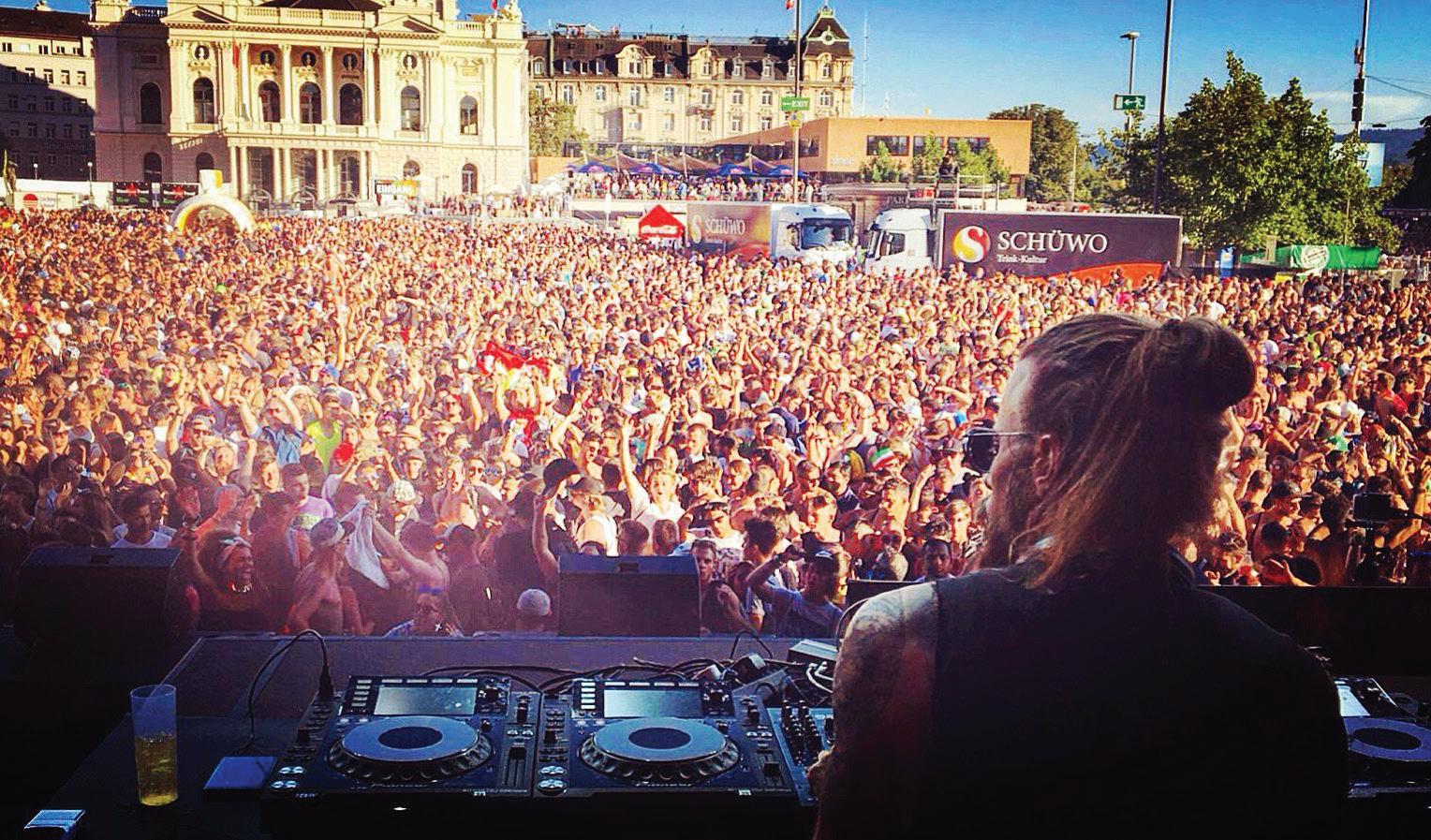
“THERE’S A LOT OF VALUE IN BEING KIND OF DELUSIONAL AND ALLOWING YOURSELF TO FLOAT A BIT, AND LIVE THE IMAGINATION. I THINK THAT’S ACTUALLY VITAL TO MANIFESTING THE EXTRAORDINARY.”
“YOU CAN’T HAVE YOUR HEAD SO FAR UP YOUR ASS THAT YOU CAN’T SEE YOURSELF OBJECTIVELY.”
before the success, that’s important. And I’ve always been weary of new people’s intentions for whatever reason so I’ve never really been one to surround myself with yes men and people who inflate your ego. And then I think with anything in life it’s vital to have some level of self awareness. You can’t have your head so far up your ass that you can’t see yourself objectively.
And beyond the music: what are some dreams or unfinished visions you still want to bring to life?
Beyond the music… I like to make stuff, all kinds of stuff. and I have what feels like 1000 ideas every minute of everyday. It’s fucking wild being in my head. I’ve been writing for years so maybe
I’ll publish a book or story at some point. Im a visual artist as well so I’m constantly creating stuff on canvas and digitally now. I’ve also studied human biology, and functional medicine
as a result of the health issues I’ve faced, and I would love to help people, so maybe something in that realm eventually. But then I go out to a show and someone will tell me how the music has kept them going when they were about to check out, or an artist will tell me how my music influenced their project. or a fan will tell me how how Art Department turned them onto house music to begin with and opened up this whole world to them.. Knowing what it is to feel that way about other artists myself, knowing I wouldn’t be here without their music, I end up at the same conclusion… music.
Follow Art Department / MAAC / No.19:
www.instagram.com/artdepartmentofficial www.facebook.com/artdepartmentmusic www.instagram.com/maac_official www.instagram.com/no.19music
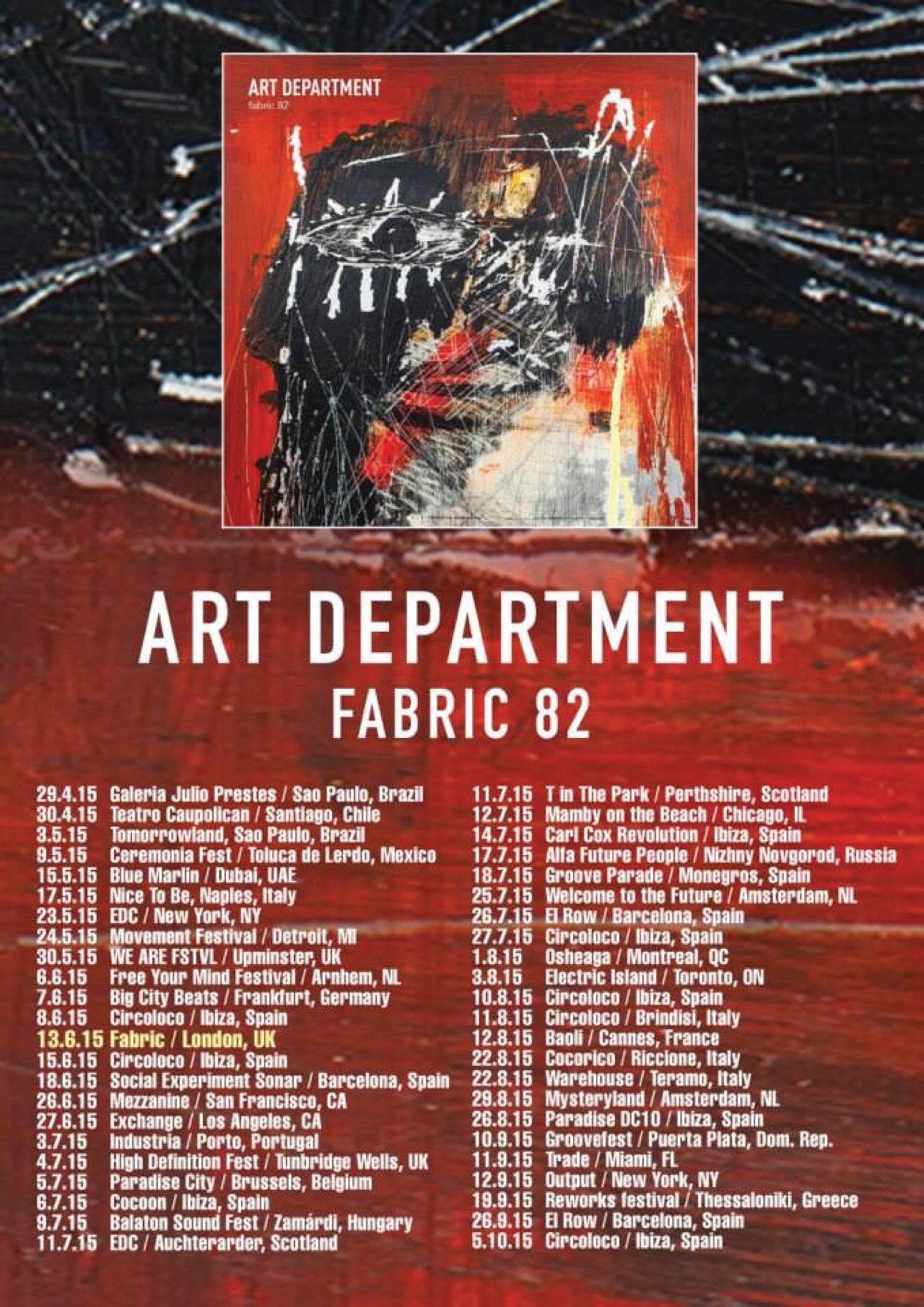
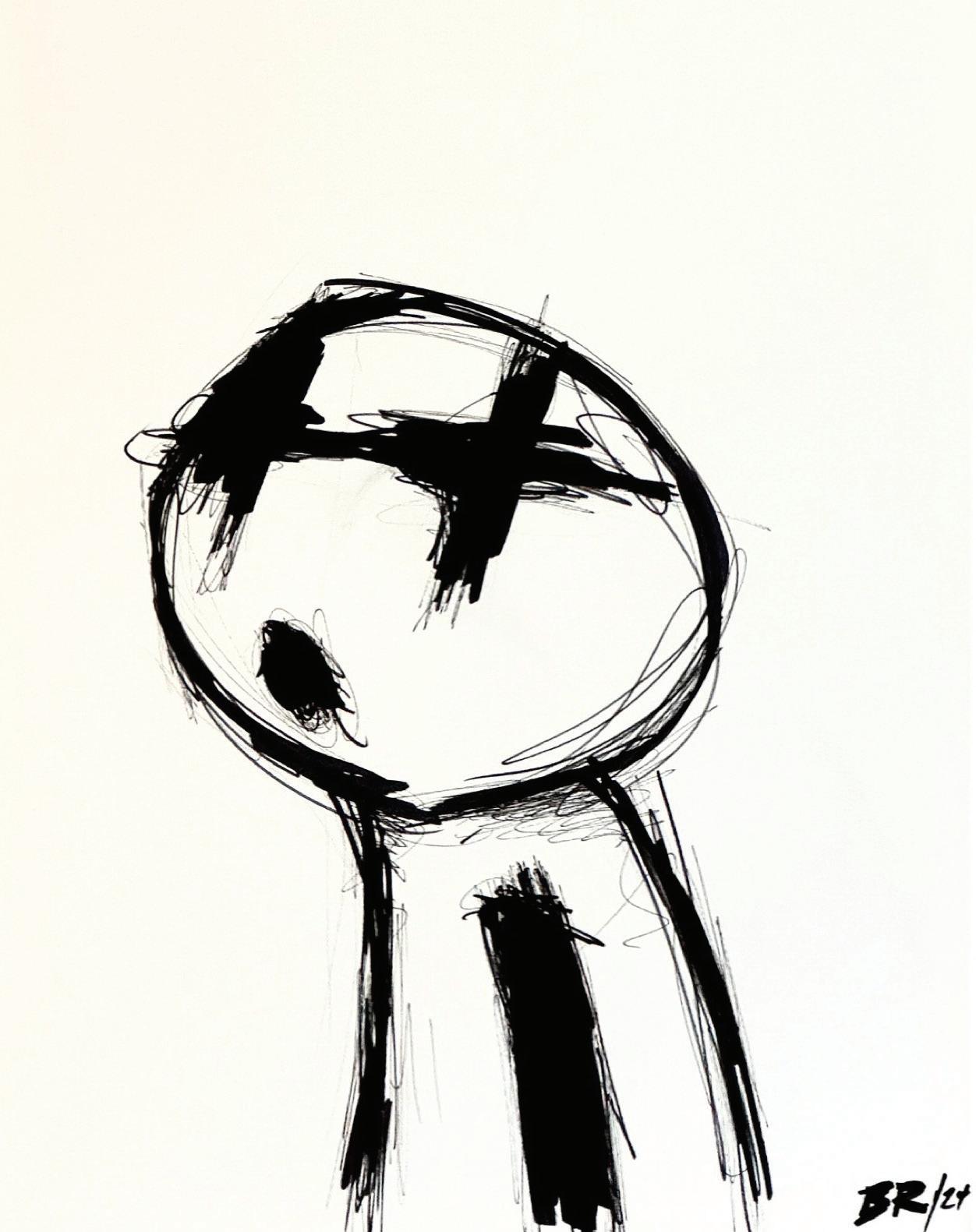

ART DEPARTMENT
Jonny White, do Art Department, Está de Volta - Mais Forte do Que Nunca
Mais do que um simples retorno às pistas de dança, Jonny White está retomando uma obra de vida - mais centrado, experiente e com um propósito mais nítido do que nunca. Nascido em Toronto, ele cresceu cercado por música; com o pai atuando como gerente de divisão na A&M
Records nos anos 80, estudando em escolas de artes durante sua formação e, mais tarde, encontrando um senso de pertencimento na cena house da cidade, à medida que ela evoluía dos armazéns para os clubes nos anos 90. Vindo de uma época em que os sets “open to close” eram o padrão, passando por festas ilegais semanais e pela fundação de seu selo No.19, o caminho de White acabou levando à ascensão meteórica do Art Department. O projeto definiu um som que ajudou a moldar o futuro da música eletrônica, rendendo faixas que chegaram ao topo das paradas e uma agenda incessante de turnês, com eventos em clubes e plataformas icônicas como Fabric, Panorama Bar, DC-10 e Boiler Room. Então veio o silêncio.
Em 2020, White adoeceu gravemente e foi hospitalizado na Espanha, sendo posteriormente diagnosticado com doença de Lyme - o que o forçou a anos de isolamento e recuperação. Essa experiência redefiniu seu senso de propósito: a gratidão se tornou sua bússola. Agora, o estúdio voltou a pulsar. Sua tão comentada colaboração com RZA (Wu-Tang Clan) é real - assim como seu primeiro trabalho solo em anos, que será lançado pelo respeitado selo Rawax. O No.19 retorna com propósito - homenageando os pioneiros da house de Toronto e abraçando novos talentos. Nos bastidores, seu projeto de conservação animal Music Against Animal Cruelty (MAAC) continua a unir arte, ativismo e preservação. Nesta entrevista exclusiva, Jonny White rompe o silêncio e mergulhamos em seu renascimento - explorando suas batalhas, sua renovação criativa e como o propósito se tornou seu verdadeiro ritmo.

“O
INDUSTRY NIGHTCLUB, EM TORONTO, NOS ANOS 90, FOI ONDE SENTI, PELA PRIMEIRA VEZ, QUE EU PERTENCIA A ESTE PLANETA.”
Onde tudo começou para você? O que primeiro te atraiu para a música quando criança?
Cresci no meio da indústria. Meu pai era gerente de divisão da A&M Records antes da Polygram assumir, então a música sempre fez parte da minha vida - estava presente em tudo, desde que me lembro. Era simplesmente parte do cotidiano da minha casa. Acho que posso dizer que essa exposição tão cedo me deu a oportunidade de me conectar com a música e perceber, desde pequeno, que ela era importante para mim. Acho que isso é algo muitas vezes subestimado.
A exposição é tudo. Na verdade, eu era mais envolvido com artes visuais quando criança e fui incentivado a seguir por esse caminho porque tinha um talento natural para o desenho. Graças a esse dom, entrei em programas de arte a partir dos dez anos, nos quais metade do dia era dedicada ao currículo artístico. Por meio disso, aprendi a tocar vários instrumentos. E acho que sempre quis fazer algo com música por causa do envolvimento do meu pai com o meio, mas só mais tarde - com minha exposição à house music e à cultura dos clubes e raves - é que passei a me interessar pela música como criador e performer.
Você se lembra do momento em que a música eletrônica realmente fez sentido para você? Qual foi essa faísca?
Já respondi a essa pergunta em várias entrevistas ao longo dos anos, e sempre mencionei uma música específica. Mas, pensando bem agora, acho que a verdadeira
faísca foi ouvir a música no contexto de um clube, estar dentro do organismo vivo e pulsante que era o Industry Nightclub, em Toronto, nos anos 90. Ouvir música eletrônica naquele ambiente pela primeira vez foi o que realmente despertou algo em mim.
Depois disso, não perdi um fim de semana sequer durante dez meses seguidos. Ia sozinho, com 16 anos, toda semana, usando uma identidade falsa, conhecendo alguém ou não.
Foi ali que senti, pela primeira vez, que eu pertencia a este planeta.
Como foram seus primeiros gigs antes de o Art Department se tornar um nome global?
Meus primeiros gigs... quero dizer, foram cerca de 12 anos de apresentações antes do Art Department, então teve de tudo - desde tocar em um bar para dez pessoas nos primeiros dias, até afters bem pesados, além de anos organizando meus próprios eventos com marca própria e comandando minhas noites e afterhours. Também comecei o selo No.19 antes do Art Department, então já fazia eventos do selo e contratávamos artistas internacionais antes mesmo de eu sair em turnê. Acho que isso era o caminho natural para a minha geração: você começa com shows locais, depois lança suas músicas e, talvez, comece a viajar. Também cheguei a fazer algumas turnês internacionais como Jonny White, antes do Art Departmente, para ser honesto, foi justamente isso que nos levou a criar o projeto. Eu não estava curtindo viajar sozinho, sem conhecer ninguém nos lugares onde tocava. Mas eu queria tocar.
“NO.19
FOI PARTE
REALMENTE
FUNDAMENTAL DA MINHA CARREIRA. MEU
PARCEIRO NITIN
E EU CRIAMOS O SELO E OS EVENTOS EM 2008, ANTES MESMO DO ART DEPARTMENT SER UMA IDEIA NA MINHA CABEÇA.”
explorações de John Frusciante no acid house e tal. Eu não fiquei surpreso com o quanto o interesse dele é profundo e variado, mas conseguimos nos conectar de verdade nesse nível. Mostrei ao RZA e ao Matt uma foto do estúdio em que eu estava trabalhando na época, o tipo de lugar que é o sonho molhado de qualquer apaixonado por equipamentos, e Matt sugeriu que fôssemos ao estúdio juntos no dia seguinte, se houvesse tempo. Entenda isso: para mim, o RZA é tipo o Quincy Jones. Esse cara é uma das mentes criativas mais importantes de todos os tempos. Então eu pensei “ah, claro”, e meio que deixei pra lá. No dia seguinte, acordei com uma sequência de mensagens entre a equipe do RZA e a minha, organizando a sessão, eles já estavam a caminho do estúdio. Ele chegou com sua equipe e uma vocalista de Detroit chamada Bevlove, e eu comecei a tocar algumas faixas que tinha feito, só pra ver se ele curtia algo. Toquei a primeira de, sei lá, umas cem batidas que eu tinha prontas, e ele estava no celular digitando. Pensei: “Droga, ele não tá curtindo nada.” Segunda faixa, ele ainda digitando… eu perguntei: “Quer que eu toque a próxima?” E ele respondeu: “Não, gostei dessa, liga o microfone.” Ele não estava enviando mensagens, ele estava escrevendo. Então começamos a gravar, e fizemos várias coisas naquele dia. Foi um dos momentos mais surreais e incríveis da minha carreira, poder trabalhar com ele. Esse material está sendo finalizado agora.
A No.19 foi um selo marcante na sua trajetória. Por que relançá-lo agora, e que tipo de lançamentos podemos esperar, tanto no No.19 quanto em labels como a Rawax?
A No.19 foi uma parte realmente fundamental da minha carreira. Meu parceiro Nitin e eu criamos o selo e os eventos em 2008, antes mesmo de o Art Department ser uma ideia na minha cabeça, então ele sempre esteve no centro de tudo o que faço na música. Paramos de lançar músicas quando a COVID aconteceu porque, para mim, simplesmente não parecia certo continuar enquanto milhões de pessoas estavam sofrendo, doentes e morrendo. Olhando agora, talvez aquilo tivesse sido a nossa forma de fazer a nossa parte para manter o ânimo das pessoas, mas também fiquei muito doente naquele período, e de qualquer forma não teria conseguido continuar trabalhando. Agora, cinco anos depois, Nitin e eu tivemos inúmeras conversas sobre o que aconteceu com a cultura desde então e sobre quais são os nossos papéis dentro de tudo isso. Acho que passamos por uma fase de desânimo e desesperança em relação a para onde tudo estava indo, mas isso naturalmente se transformou em motivação, a vontade de fazer a nossa parte para preservar a música e a cultura, junto com todos os outros selos que estão lutando para manter essa cena viva. É uma coisa se você simplesmente perde o interesse por tudo, mas é outra muito diferente sentir indignação e ainda assim ficar parado, sem
contribuir de alguma forma para tentar mover as coisas na direção certa. Se ninguém fizer nada, tudo realmente acabará completamente vazio da alma sobre a qual essa cultura foi construída. Então estamos de volta a fazer o que sempre fizemos: lançando músicas que amamos, e chegando perto de 100 lançamentos no selo. Estamos começando novamente do mesmo jeito que foi em 2008, representando nossa cidade natal, com lançamentos de lendas de Toronto como Nick Holder, Tyrone Solomon, Toronto Hustle, Ron Allen, Abicus, Basic Soul Unit, Kenny Glasgow, Nathan Barato, além de alguns novos artistas de Toronto que me interessam muito, como Cosmic JD, Jordan Gardner e Ciel. É uma lista bem mais longa que também inclui Nitin e eu.
Também temos material de Satoshi Tomiie, D’Julz, DJ Deep e Joeski. Quanto à Rawax, trata-se de um novo relacionamento com o selo. Robert Drewek está comandando uma das melhores gravadoras de música underground do momento, e é uma honra lançar meu primeiro trabalho original em anos com eles e ver onde isso vai dar.
É disso que tudo se trata para mim - trabalhar com pessoas realmente dedicadas a manter o nível quando o assunto é qualidade e preservação.
Você também vem continuando seu trabalho com o MAAC. Que papel isso desempenha na sua jornada criativa hoje?
Com o MAAC, estamos dando continuidade à





